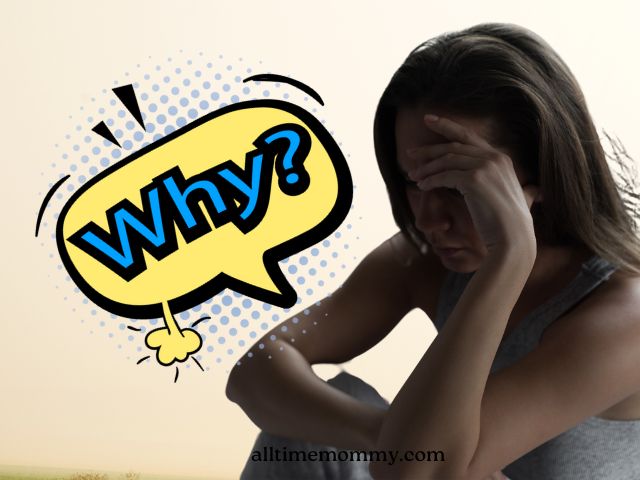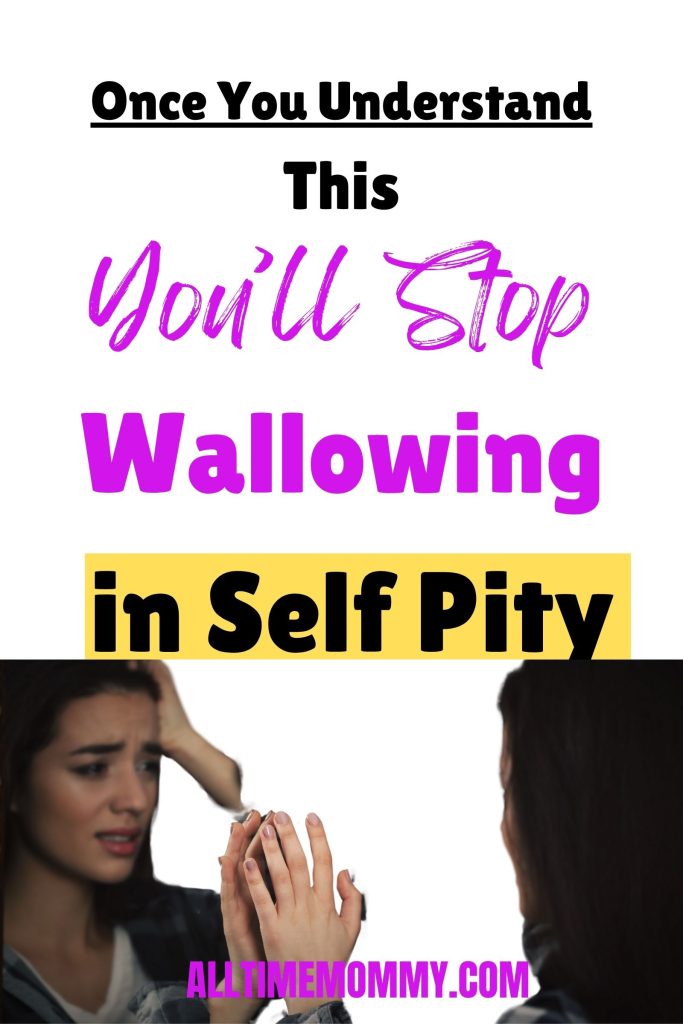Have you ever found yourself wallowing in self pity? Often feeling like life is unfair, discriminative or seems to favor others more than you?
I know.
We’ve all been there—feeling stuck, frustrated, and wondering why life seems to be working against us.
It’s a natural response when things go wrong.
But here’s the reality.
As long as we stay in a mindset of self pity and blame, we trap ourselves in a cycle of inaction and negativity.
The worst part is that the result remains unchanged.
What if the key to breaking free from this isn’t outside us but within?
Today, we discuss a few simple truths that may shift your mindset and recall your power from self pity.
But before then,
What is Self Pity?
Self pity is a self-centered negative emotional state in which one constantly feels sorrow.
A person wallowing in self pity sympathizes with his or herself in response to personal suffering. This feeling can happen internal or external.
But not just that.
Sometimes, self pity can be seen as an emotion aimed at others, often to draw attention, empathy, or assistance.
Where Does Self Pity Come From?
Self pity often stems from emotional, cognitive, and situational factors.
Here are some key sources of self pity:
-
Unmet Expectations
When reality falls short of our hopes or desires, which triggers feelings of disappointment.
-
Perceived Injustice or Unfairness
When people feel life has treated them unfairly or that others have advantages they don’t, they may develop a sense of victimhood, fueling self-pity.
-
Lack of Control
Situations that make people feel powerless or out of control, such as illness, financial hardship, or social isolation
-
Negative Self-Perception
Low self-esteem or self-worth can cause individuals to internalize setbacks as personal failures, making it easy to fall into self-pity.
-
Comparison to Others
Constantly comparing oneself to others, especially in a social media-driven world, can lead to feelings of inadequacy and self-pity, as people tend to focus on what they lack compared to others.
-
Life Stressors
Overwhelming from Life Stressors like work, family issues, or personal struggles—pile up, can lead to emotional exhaustion.
-
Seeking External Validation
Some people experience self pity as a way of eliciting sympathy, validation, or attention from others, using it as a tool to meet emotional needs.
Related:
5 Tiny Morning Routine Ideas That Will Make Your Day Super Great
How To Deal with Self Pity Permanently and Step Into Your Power
1. Know That Your Mind Can Sometimes Lie
There is something called brooding rumination. Here, you continuously think about the same thoughts, often focusing on negative experiences.
It’s a mental pattern in which you repeatedly revisit distressing situations or worries without moving toward solutions or acceptance.
Brooding Rumination can intensify emotions like anxiety, sadness, or even self pity.
Often, people wallow in self pity because of unmet expectations that turn into brooding Rumination.
The stories we tell ourselves, often ingrained since childhood, shape our beliefs, actions, and, ultimately, our reality.
For example:
“I’m not good enough,” “Why does this always happen to me?” or “I’ll never be able to fix this.” “I’m too old to change.”
Sound familiar?
These narratives can trap us in a cycle of self-doubt, pity and mediocrity.
So what is the way forward?
Change the story in your mind.
You can embark on reinvention by rewriting these internal narratives.
Adopting a new, empowering story can transform your mindset, actions, and outcomes.
It’s not about ignoring reality but reshaping your perspective to align with your goals and aspirations.
Once you understand that your mind can exaggerate or lie, you may work towards being objective.
Practice cognitive restructuring. Learn to challenge irrational or negative thought patterns and replace them with more balanced thoughts.
Related:
9 Addiction You Must Break To Become Your Best Self
2. Understand That the Journey is Everything.
Self-pity often stems from impatience or a belief that success should happen quickly.
But is it really true?
No.
Understanding that the process takes time may help you cultivate patience, acceptance, and a sense of peace.
You will stop comparing yourself with others and start minding your business.
This mindset shift emphasizes the value of the process, including both the highs and the lows, rather than focusing only on the result or fixating on challenges.
Realizing that struggles are necessary for growth and success reframes difficulties as opportunities rather than setbacks.
Just like muscles grow stronger with resistance, your mental and emotional resilience increases through overcoming obstacles.
Instead of thinking, “Why does this always happen to me?” you might begin to think, “This challenge is teaching me something valuable.”
Each hardship has the potential to build strength, teach lessons, and create wisdom.
One trap of self-pity is comparing your struggles to others’ or even to past versions of your own life.
This can lead to feelings of inadequacy, frustration, or bitterness.
However, no two struggles are the same, and expecting life to be free of hardship or comparing your difficulties to others can lead to unproductive thinking.
You can stop making unfair comparisons by understanding that challenges are unique to each person and even to different phases of your life.
Your journey is your own and will involve different challenges at different times.
What’s hard now may not be what was hard before—or will be hard in the future—but each struggle moment shapes you for the next step.
Related:
8 Life Lessons I Wish I Learned In My 20s
3. Understand That Life is Governed by Principles and Not Sympathy
Life operates based on universal principles—such as cause and effect, effort and reward, or action and consequence.
These principles are impartial and apply to everyone, regardless of circumstances.
When you internalize this, you realize that outcomes are not determined by whether others feel sorry for you or your situation seems unfair but by how well you align your actions with these underlying principles.
Please take sometime and learn about the laws and principles that govern the law.
Understanding principles empowers you to focus on what you can do to align and improve your Life.
Self-pity keeps you passive, waiting for external factors—such as sympathy or luck—to change your situation.
When you grasp that Life is governed by principles that apply to everyone equally, you begin to accept that the universe doesn’t play favorites or make exceptions based on how difficult your situation feels.
Life is not always “fair” in a subjective sense, but it is impartial—meaning it responds to actions based on principles, not emotions.
For example:
• If you want financial freedom, the principle of smart financial management (saving, investing, budgeting) will lead to success.
• If you want to be physically fit, consistent exercise and healthy eating will get you there—not just wishing things were easier.
4. The Belief that You Can Do Something about Your Situation
Self-pity is often rooted in the belief that external forces dictate your happiness, success, or well-being.
This can lead to feeling like a victim of circumstances, waiting for things to improve or for others to provide solutions.
However, when you understand that you control your internal world—how you think, react, and perceive things—you no longer see yourself at the mercy of external events.
You realize that while you can’t always change what happens around you, you can always change how you respond.
Self pity often keeps people stuck in a cycle of focusing on their problems—what’s wrong, unfair, and difficult things are.
But when you believe you can influence your internal state, your focus shifts to solutions.
You start asking yourself:
• “What can I do to feel better?”
• “How can I change how I think about this situation?”
• “What action can I take to move forward?”
This shift in focus from the problem to the solution naturally reduces self pity.
Why? because it empowers you to take control and create positive change.
Even if you can’t immediately solve the external issue, knowing you can change your emotional or mental approach to it helps alleviate feelings of helplessness.
Related:
Lazy Girl Guide For Getting Things Done On Time Every Day
5. Let Go of The Need to Have Control Over External Circumstances
Self pity thrives on resistance—feeling that life is unfair, that things should be different, or that others
Letting go of the need to control external circumstances can significantly reduce self-pity .
It shifts your focus away from things beyond your control and redirects your energy toward what you can influence—your thoughts, emotions, and responses.
Self pity often arises when we feel frustrated or overwhelmed by our inability to control situations, people, or outcomes, and this sense of helplessness fuels a victim mindset.
By accepting that external circumstances are often beyond your control, you stop wasting energy wishing things were different.
Instead, you embrace reality, reducing frustration, disappointment, and the feeling that life is unfair.
Acceptance brings peace and stops the spiral of self-pity because you no longer feel victimized by uncontrollable forces.



